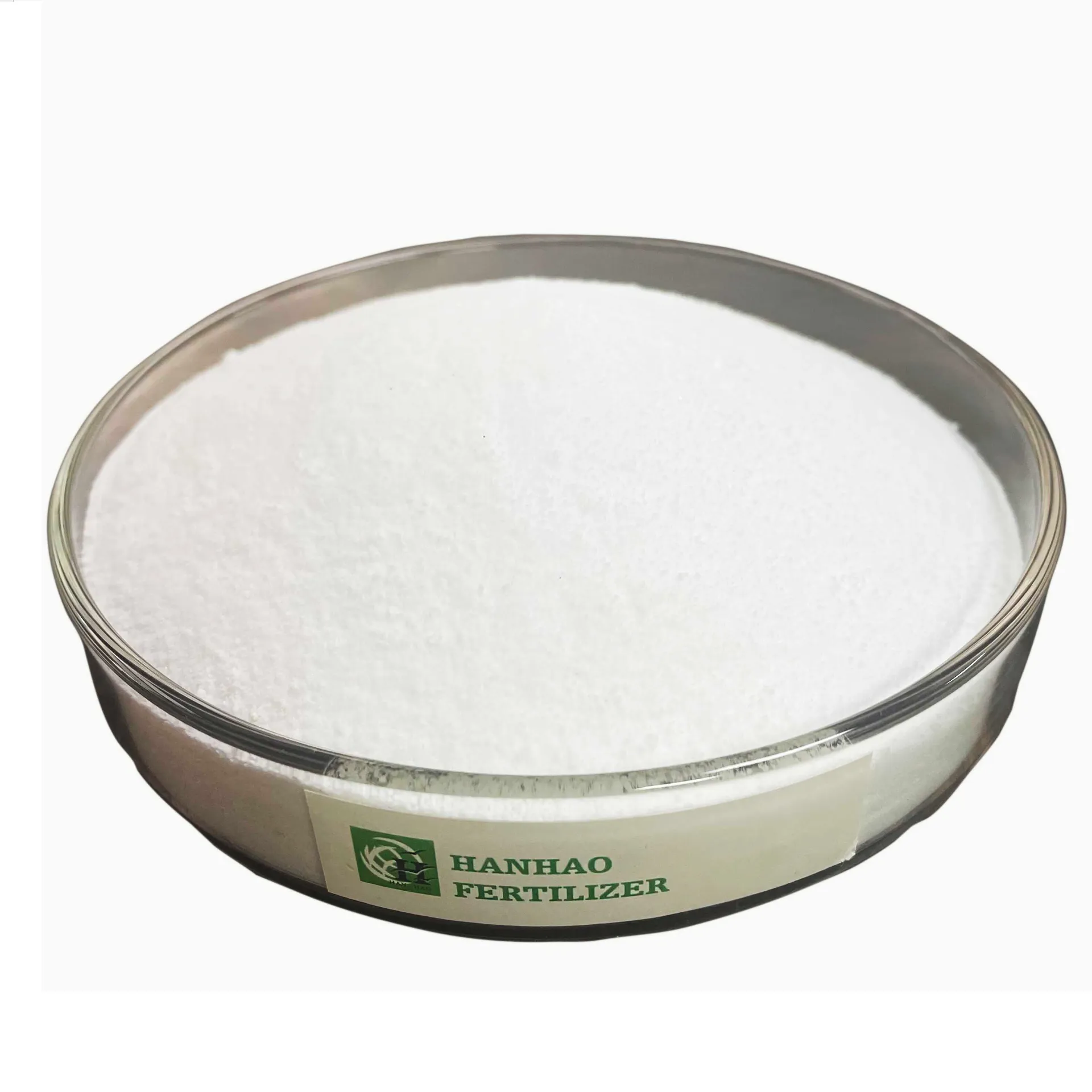
May . 23, 2025 09:35 volver a la lista
Potash Fertilizer: Essential Crop Nutrition from Trusted Bulk Suppliers
In modern agriculture, potassium is one of the most vital nutrients for plant health and crop productivity. Potash fertilizer, the most common source of potassium, helps improve root development, water retention, disease resistance, and overall yield quality.

Whether you're managing a large farm or supplying commercial growers, sourcing bulk potash fertilizer from a reliable potash fertilizer company ensures consistent performance, better pricing, and long-term soil fertility.
What Is Potash Fertilizer?
Potash fertilizer refers to any potassium-containing compound used to enrich soil for plant growth. The word "potash" comes from “pot ash,” an early method of producing potassium from wood ash. Today, it’s mostly mined from underground deposits and refined for agricultural use.
Key forms of potash fertiliser include:
|
Type |
Chemical Name |
Potassium Content (K₂O) |
Notes |
|
Muriate of Potash (MOP) |
Potassium chloride (KCl) |
60–62% |
Most common and cost-effective |
|
Sulfate of Potash (SOP) |
Potassium sulfate (K₂SO₄) |
50–52% |
Chloride-free, ideal for sensitive crops |
|
Potassium Magnesium Sulfate |
K-Mag or Langbeinite |
~22% K₂O |
Multi-nutrient for specialty crops |
|
Organic Potash Sources |
Wood ash, composted manure |
Varies |
Slow release, lower concentration |
Why Use Potash Fertiliser?
Potassium plays a critical role in:
Water regulation – Helps plants retain and efficiently use water
Photosynthesis – Assists in sugar and starch production
Enzyme activation – Essential for protein and nutrient synthesis
Stress resistance – Improves tolerance to drought, pests, and diseases
Quality yield – Enhances fruit size, color, and storage life
Crops like potatoes, tomatoes, corn, cotton, sugarcane, and fruit trees have high potassium demands. A well-balanced potash fertiliser strategy helps optimize both yield and crop quality.
Bulk Potash Fertilizer: The Smart Buy for Large-Scale Agriculture
Buying bulk potash fertilizer offers multiple advantages:
✅ Lower cost per ton – Ideal for large farms, distributors, or cooperatives
✅ Consistent supply – Ensures you have enough product across the growing season
✅ Custom blending options – Tailor NPK ratios to your region and crop
✅ Flexible delivery – Available in 25kg bags, 500kg–1000kg jumbo bags, or bulk tanker loads
Most potash fertilizer companies offer bulk pricing tiers starting from 10 to 25 metric tons. When buying in container or rail car loads, price per ton drops significantly compared to retail bags.
Application Tips for Potash Fertilizer
Broadcasting: Spread evenly over the field before planting
Banding: Applied near seed rows to support early root development
Foliar spray (SOP only): Can be used as a potassium supplement during critical growth phases
Fertigation: SOP and K-Mag are water-soluble and suitable for drip systems
Note: MOP is not ideal for chloride-sensitive crops like grapes, berries, or tobacco — SOP or blended options are preferred in these cases.
What to Look for in a Potash Fertilizer Company
When selecting a potash fertilizer company, check for:
|
Factor |
Why It Matters |
|
Product range |
Offers MOP, SOP, and specialty potash options |
|
Logistics capability |
Can ship in bulk or container loads globally |
|
Blending services |
Custom NPK mixes tailored to your local soil data |
|
Certifications |
ISO, SGS reports, or country-specific compliance docs |
|
Support |
Agronomic advice, usage guidance, post-sale support |
However, many mid-size regional potash fertilizer companies offer competitive pricing and faster shipping.
Potash Fertilizer Price: What to Expect
The potash fertilizer price fluctuates depending on:
Global demand and crop cycles
Transportation costs
Potash type (MOP is cheaper than SOP)
Order volume and packaging format
Currency exchange rates (for imported products)
Average price range (as of recent global estimates):
|
Product |
Price (USD per metric ton) |
|
Muriate of Potash (MOP) |
$300–$450/MT (FOB bulk) |
|
Sulfate of Potash (SOP) |
$550–$750/MT |
|
Organic potash blends |
$200–$400/MT |
Prices may vary by country and market — always confirm current rates and incoterms (FOB, CIF, EXW) when placing bulk orders.
Potash Fertilizer FAQs
Q1: What’s the difference between MOP and SOP?
A: MOP contains chloride and is cheaper, best for general use. SOP is chloride-free and better for sensitive crops but is more expensive.
Q2: Can I mix potash with nitrogen or phosphorus fertilizers?
A: Yes — potash is often part of blended NPK fertilizers. Make sure the mixture is compatible for storage and application.
Q3: Is potash fertilizer suitable for organic farming?
A: Only natural potash sources (like wood ash or mined SOP) are allowed in certified organic farming. Check with your certification body.
Q4: How much potash fertilizer should I apply per acre?
A: It depends on crop type, soil test results, and fertilizer concentration. For field crops, typical rates range from 50 to 150 lbs of K₂O per acre.
Q5: Where can I buy bulk potash fertilizer near me?
A: Check local agri-input suppliers, cooperatives, or contact a regional potash fertilizer company for direct deals and delivery options.
As a key driver of crop yield and quality, potash fertilizer plays a vital role in any nutrient management plan. Whether you're a farm owner, reseller, or distributor, sourcing bulk potash fertilizer from a reliable potash fertilizer company ensures better value, higher performance, and timely application throughout the season.
-
Organic Pepper Fertilizer – Sustainable Growth for Healthier Crops and Soils
NoticiasNov.25,2025
-
Sustainable Growth with Organic Phosphate Fertilizer | Benefits & Innovations
NoticiasNov.24,2025
-
Organic Phosphorus and Potassium Fertilizer: Sustainable Soil Nutrition & Global Impact
NoticiasNov.24,2025
-
Organic Phosphorus Fertilizer: Sustainable Nutrient Solutions for Modern Agriculture
NoticiasNov.23,2025
-
Sustainable Growth with Organic Phosphorus Plant Fertilizer | HH Fertilizer
NoticiasNov.23,2025
-
Organic Plant Meal Fertilizer for Sustainable Agriculture – Benefits & Innovations
NoticiasNov.22,2025
